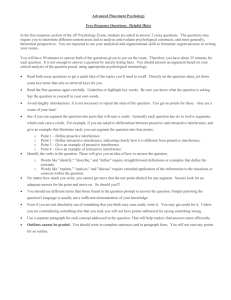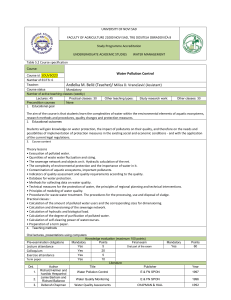Design of Wind Energy Plants 7.5 credits ER8002 Advanced level
advertisement
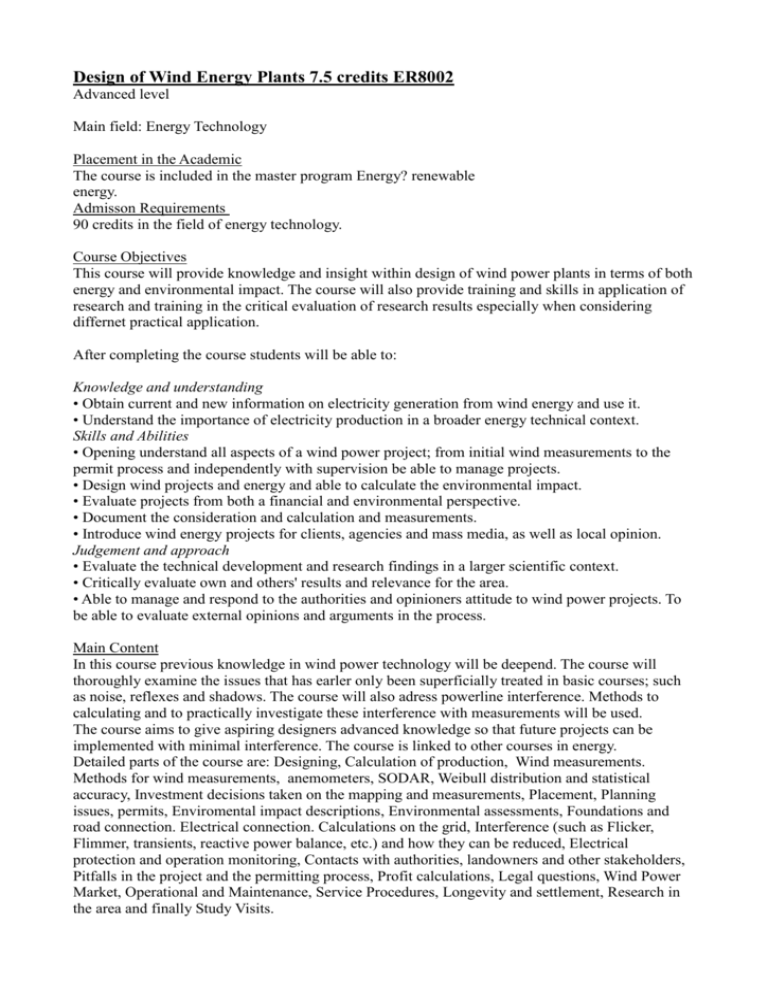
Design of Wind Energy Plants 7.5 credits ER8002 Advanced level Main field: Energy Technology Placement in the Academic The course is included in the master program Energy? renewable energy. Admisson Requirements 90 credits in the field of energy technology. Course Objectives This course will provide knowledge and insight within design of wind power plants in terms of both energy and environmental impact. The course will also provide training and skills in application of research and training in the critical evaluation of research results especially when considering differnet practical application. After completing the course students will be able to: Knowledge and understanding • Obtain current and new information on electricity generation from wind energy and use it. • Understand the importance of electricity production in a broader energy technical context. Skills and Abilities • Opening understand all aspects of a wind power project; from initial wind measurements to the permit process and independently with supervision be able to manage projects. • Design wind projects and energy and able to calculate the environmental impact. • Evaluate projects from both a financial and environmental perspective. • Document the consideration and calculation and measurements. • Introduce wind energy projects for clients, agencies and mass media, as well as local opinion. Judgement and approach • Evaluate the technical development and research findings in a larger scientific context. • Critically evaluate own and others' results and relevance for the area. • Able to manage and respond to the authorities and opinioners attitude to wind power projects. To be able to evaluate external opinions and arguments in the process. Main Content In this course previous knowledge in wind power technology will be deepend. The course will thoroughly examine the issues that has earler only been superficially treated in basic courses; such as noise, reflexes and shadows. The course will also adress powerline interference. Methods to calculating and to practically investigate these interference with measurements will be used. The course aims to give aspiring designers advanced knowledge so that future projects can be implemented with minimal interference. The course is linked to other courses in energy. Detailed parts of the course are: Designing, Calculation of production, Wind measurements. Methods for wind measurements, anemometers, SODAR, Weibull distribution and statistical accuracy, Investment decisions taken on the mapping and measurements, Placement, Planning issues, permits, Enviromental impact descriptions, Environmental assessments, Foundations and road connection. Electrical connection. Calculations on the grid, Interference (such as Flicker, Flimmer, transients, reactive power balance, etc.) and how they can be reduced, Electrical protection and operation monitoring, Contacts with authorities, landowners and other stakeholders, Pitfalls in the project and the permitting process, Profit calculations, Legal questions, Wind Power Market, Operational and Maintenance, Service Procedures, Longevity and settlement, Research in the area and finally Study Visits. Course outline The course includes lectures, exercises and laboratory testsas well as field trips. Instruction is English. In the course compulsory seminars occur, the students are expected to present and discuss a subject in the course at the siminars. There is also a project which adresses the calculation of energy production at different locations as well as sound emissions. Commerceally available computer programs is used in the calculation. The result from the project should be presented in a report wich also must be orally presented at a seminar. Examination As overall grades used one of the following? Fail, 3, 4 or 5th The examination is based on homework assignments, seminar activities and project work as well as written examination. Course Evaluation In the course there is a course evaluation. This should be the guiding for the development and planning of the course. Course evaluations should be documented and made available to students. Preliminary reading list Tore Wizelius; Wind energy projects, Studentlitteratur
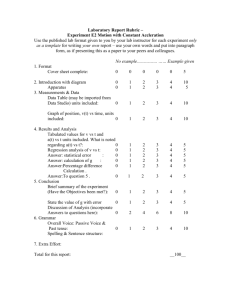

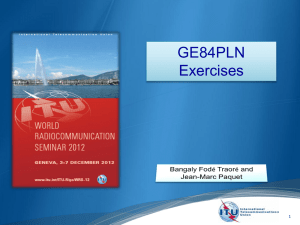
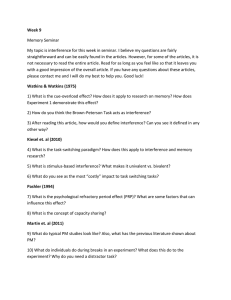
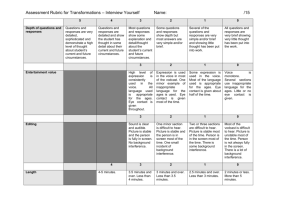
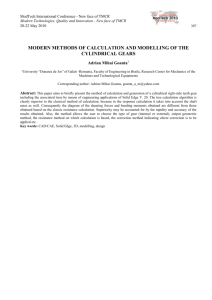

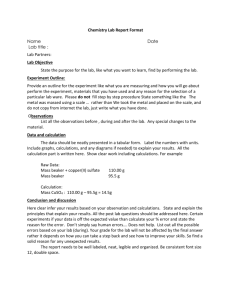
![Wave Interference []](http://s3.studylib.net/store/data/009269968_1-97379e48baef1370e4514f73f8b3c35d-300x300.png)

